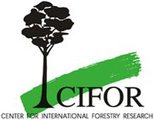The Center for International Forestry Research (CIFOR) has released two reports on Brazil nuts, one examining the relationship between Brazil nut and timber harvesting in Peru and a second on the relationship between Brazil nut harvesters and logging operators in Bolivia.
 11 June 2013: The Center for International Forestry Research (CIFOR) has released two reports on Brazil nuts, one examining the relationship between Brazil nut and timber harvesting in Peru and a second on the relationship between Brazil nut harvesters and logging operators in Bolivia.
11 June 2013: The Center for International Forestry Research (CIFOR) has released two reports on Brazil nuts, one examining the relationship between Brazil nut and timber harvesting in Peru and a second on the relationship between Brazil nut harvesters and logging operators in Bolivia.
In the case of both studies, the articles reveal that Brazil nuts are only produced in primary forests because of their unique pollination needs. As such, when an area adjacent to Brazil nut trees is over-logged, production of Brazil nuts is reduced or lost.
The study in Peru will examine options for selective logging to supplement the income of Brazil nut concession owners. In particular, it will attempt to establish what level of logging will result in minimal tradeoffs for concession owners. In carrying out the study, CIFOR scientists will work with local researchers and concession owners to establish whether the current level of approved selective logging (about one tree per hectare) has a positive, negative or neutral effect on Brazil nut production.
In Bolivia, the CIFOR study examined how local communities are managing their forests, revealing that many communities hand over logging rights to private companies. The reason for such a decision, according to the study, is the complicated process involved in developing a forest management plan, which is beyond the capacity of many local communities. The study therefore recommends that all forest management plans in Brazil nut production areas should be required to document where Brazil nut stands are located, what the expected impact of logging activity will be and how negative impacts will be avoided.
CIFOR is a member of the Consultative Group on International Agricultural Research (CGIAR). [CIFOR Blog Post – Peru] [CIFOR Blog Post – Bolivia]